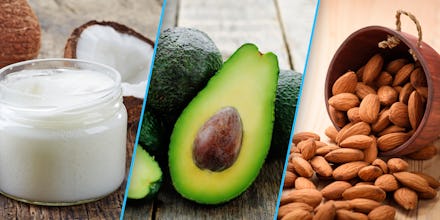12 times the vegan diet wasn't good for you — or the planet

Thinking about quitting burgers and pizza in the name of health or the environment? You'd be in good company. Roughly 7.3 million Americans follow a vegetarian diet, the Vegetarian Times noted in 2008, and plenty more aren't eating less meat in the name of health or wellness. Approximately one million people are vegans.
Science confirms that veganism does a body good. Eating a vegan diet is associated with being thinner, having lower blood pressure and cholesterol, and have a lower risk of cardiovascular disease compared to the standard American diet, according to an article published in the American Journal of Clinical Nutrition.
But veganism isn't exactly the magic health bullet some people think it is. For starters, the diet doesn't always provide certain essential nutrients like calcium and iron. And certain vegan staples like protein-rich soy potentially harm the environment. Even more, some of the most common vegan eats aren't always as healthful as they're marketed to be.
So done without care, veganism is more questionable when it comes to the environment than many people realize. Here's what you need to know if meat and dairy are off the table for you.
Vegan staples aren't necessarily as healthy as they're cracked up to be.
Products like tofu or tempeh — which many veg-heads rely on for protein — don't necessarily deserve the health halo they're prescribed by media outlets.
1. Fake meats contain iffy filler ingredients.
Questionable ingredients help mold fake meats into burger patties, deli slices and other shapes, DailyBurn reported. Some brands of meat substitutes, for example, contain processed mold (ew), a food additive the Center for Science in the Public Interest warns against.
2. Coconut oil is mostly saturated fat.
3. The benefits of soy are overstated.
Many soy studies emphasize the plant's heart-healthy benefits. But the amount of soy used in many studies is much higher than the amount people consume in real life, Dr. Mark Hyman, Medical Director at Cleveland Clinic, noted.
Some staple nondairy foods are bad for the environment.
You're saving the animals, but are you still saving the environment? Here's what to know about favorite vegan foodstuffs and how their carbon footprints stack up.
4. It takes 1.1 gallons of water to produce a single almond.
5. Avocados need a ton of water, too.
6. Soybean production is causing deforestation.
7. 94% of U.S. soybeans are genetically engineered.
Vegans miss out on important nutrients.
Going cold turkey on, well, turkey (and other meats) has consequences. Animal-based food sources provide essential vitamins and nutrients. Here's what vegans are missing:
8. Research shows many vegans don't get enough B12.
9. Antioxidant compounds in vegetables prevent absorption of calcium.
10. Plant-based iron is often less bioavailable than meat-based sources.
Your body has a harder time digesting iron from plant sources, Everyday Health noted. Iron from plants is considered "nonheme" and iron from meat is considered "heme," and the rates of absorption are 2% to 20% for nonheme and 7% to 35% for heme.
11. Antioxidant compounds in vegetables prevent zinc absorption.
12. Vitamin D levels are lower in vegans.
Jan. 31, 2018, 5:04 p.m.: This story has been updated.